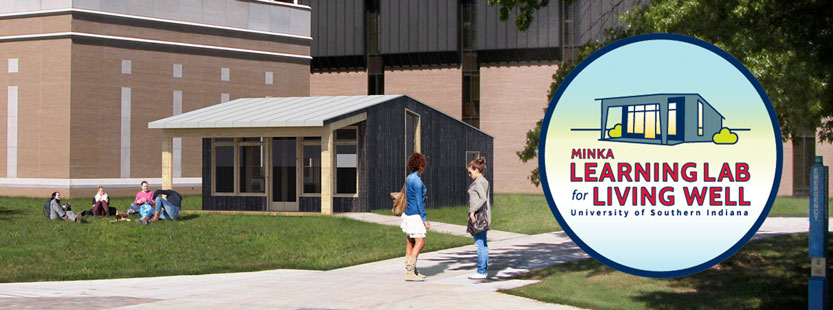
The University of Southern Indiana received a $50,000 Catalyst Award from the U.S. National Academy of Medicine (NAM)—part of the National Academy of Sciences—for a project to improve emotional well-being and independence for people living with dementia, especially those aging-in-place.
Dr. Lisa Fournier, Project Coordinator for the USI Geriatrics Workforce Enhancement Program (GWEP), entered NAM’s Healthy Longevity Global Competition with a proposal to investigate whether an artificial intelligence (AI) virtual assistant can help create a positive emotional environment for people with cognitive disabilities. Her application was one of 25 accepted this year by NAM and was among 145 international awardees announced during a virtual event in September.
“To be recognized on a global stage is very exciting,” said Fournier. “I’m so inspired by all the research and innovative projects that are taking place worldwide to help maintain health and well-being as we age.”
Fournier’s project, Joy for People Living with Dementia Using a Virtual Assistant, is based on “Joi,” an AI virtual assistant that creates personalized “joy pops” for people living with dementia within a smart-home living environment. “Joy is linked to dopamine systems that reward the brain when having a positive experience, as well as reinforce behavior, motivating a person to repeat an activity,” she said. “Our goal is to harness the power of AI and combine it with joy, meaning and positivity to help people living with dementia grow and rise above the challenges of cognitive disabilities and maintain independence.”
Fournier and the GWEP team will use the NAM Catalyst Award to accelerate “Joi” in the Minka Learning Lab for Living Well, a 600-square-foot home on the USI campus that integrates technology, adaptable living and innovations in aging and wellness. She said the AI “joy pop” triggers will be based on input from sensors in the smart home, including motion, sound, temperature and light to provide a comfortable and moderately stimulating environment to reduce agitation, apathy and anxiety.
According to NAM, older adults will begin to outnumber the young for the first time in recorded history in the year 2030. This demographic shift poses significant challenges, but also is an opportunity for innovation around healthy longevity. NAM founded the Healthy Longevity Global Competition to accelerate research and entrepreneurism with a series of monetary awards and prizes. The first of three cycles of the Catalyst phase began in January 2020, and there are also Accelerator and Grand Prize phases.
For more information about GWEP, visit the Project website at USI.edu/GWEP.